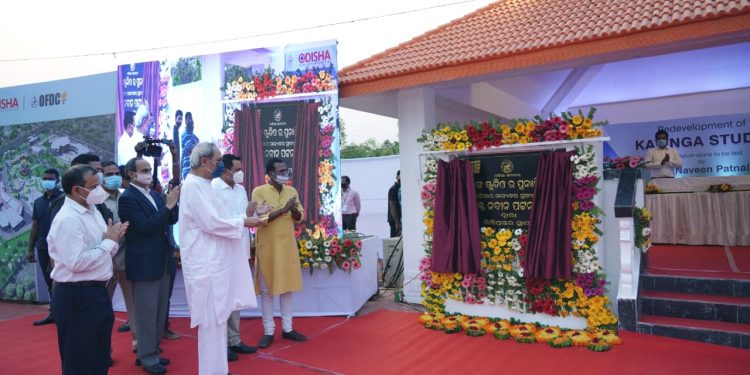Bhubaneswar: Chief Minister Naveen Patnaik Thursday laid the foundation stone for redevelopment of the Kalinga Studio here.
Odisha Forest Development Corporation (OFDC) Chairman, Satyabrata Tripathy, who was also present during the ceremony, outlined the key infrastructure facilities at the proposed project.
Established in 1980, the studio has played a significant role in changing the face of Odia cinema. In that era, it was the only film studio with latest equipment in eastern region of the country.
Thanks to the studio, the state has produced some of the finest movies. However, the industry has lost its glory primarily due to its inability to catch up with latest infrastructure and technology in film making.
Keeping this in view, the state government has approved Rs 200 crore for transfiguration of Kalinga Studio into a modern and futuristic film studio with state-of-the-art infrastructure.
The project will be executed by Idco which is expected to complete the construction and landscaping of the core support area by December 2022. The project’s concept and master plan will be done by an international consulting firm ‘M/s Grant Thornton Bharat LLP’.
The studio will be developed spreading into three different zones comprising infrastructure such as multi-sized indoor shooting halls with all modern facilities, make believe shooting locales, theme based parks, studios for post-production such as dubbing and mixing, animation work station, editing suite, DI (Digital Intermediate) studio, preview theatre, directors’ room, space for brainstorming, script narration, casting, recording lab, radio and media houses etc. Along with film production, the studio proposes to contain comprehensive fun, entertainment and a leisure hub.
The infrastructure includes live performance stage, adventure parks, kids play area, water games, castle view, snow world, iconic points etc along with boarding and lodging facilities for film crew and space for social and cultural gatherings.
The objective of the project is to preserve the heritage of state and support upliftment of Odia film industry. The infrastructure will create a film industry eco-system which would help develop not only Odia movies, but also cater to many downstream affiliates of the sector in the larger entertainment and creative services industry.
The project would also catalyse employment in film, media, and entertainment industry. It envisages direct employment of around 2,000 in film, media, and entertainment sector along with indirect and induced employment generation of more than 10,000.
Moreover, the creative talent pool of Odisha who migrates to other states for livelihood will get employment in their home state.
PNN






































